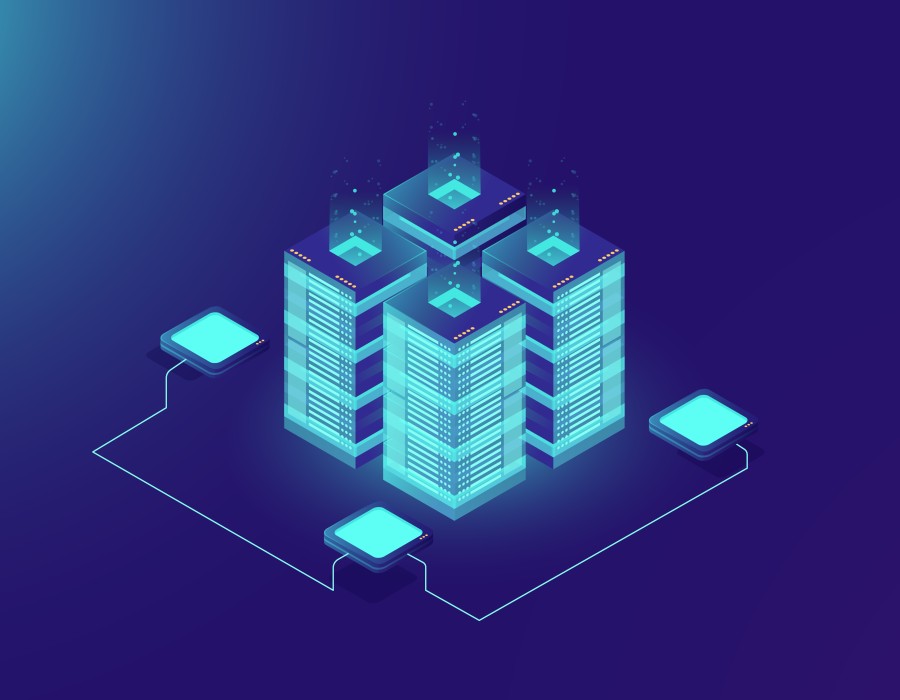Imagine a world where land ownership disputes are a relic of the past. Where property transactions happen with the click of a button and secure digital records eliminate the risk of fraud. This vision is no longer a utopian dream; it's the promise of blockchain land registry platform development.
The traditional system of land registries, reliant on paper records and centralized control, is riddled with vulnerabilities. Lost documents, bureaucratic red tape, and the potential for human error create a system ripe for inefficiency and abuse. But what if we could move from paper trails to digital deeds, stored securely on a distributed ledger accessible to all?
Blockchain: The Disruptive Force in Land Management
Blockchain technology, the backbone of cryptocurrencies like Bitcoin, presents a revolutionary solution for land registries. Here's how it works:
- Decentralized Network: Records are no longer held by a single authority, but distributed across a network of computers. This eliminates a single point of failure and reduces the risk of manipulation.
- Immutability: Every transaction gets cryptographically secured and added as a block to the chain, creating an unalterable record of ownership history. No one can tamper with the records, ensuring their authenticity.
- Transparency: All authorized participants can access land ownership information, fostering trust and accountability among landowners, government agencies, and other stakeholders.
- Smart Contracts: Self-executing contracts automate specific actions upon meeting pre-determined conditions. Imagine automatic property transfers upon completion of payments, streamlining the entire process.
Beyond Security: The Value Proposition of Blockchain Land Registries
The benefits of developing a blockchain land registry platform extend far beyond enhanced security:
- Increased Efficiency: Automated processes powered by smart contracts significantly reduce turnaround times for land transfers and other transactions.
- Reduced Costs: Eliminating intermediaries (like lawyers) and streamlining workflows lead to cost savings for all involved parties.
- Improved Access to Finance: Secure and transparent landownership records empower individuals to leverage their land as collateral, unlocking new financing opportunities.
- Empowerment for Landowners: Easy access to ownership information allows individuals to better manage their assets and participate more actively in the real estate market.
Building the Future: Considerations for Development
Developing a successful blockchain land registry platform requires careful planning and addressing specific challenges:
- User Adoption: Building user-friendly interfaces and robust mobile applications is crucial for ensuring widespread adoption among various stakeholders.
- Regulatory Alignment: Integrating the platform with existing legal and regulatory frameworks is essential for ensuring legal enforceability of land transactions.
- Data Security and Privacy: Balancing transparency with robust access controls and data security protocols is paramount to protecting sensitive land ownership information.
- Scalability and Performance: The platform needs to be designed to handle large volumes of transactions and accommodate a growing user base.
Collaboration is Key: Moving Forward with Blockchain Land Registries
The development of blockchain land registry platforms requires collaboration between governments, technology companies, and legal professionals.
- Governments: Can play a leading role by establishing regulatory frameworks that encourage innovation while maintaining stability.
- Tech Companies: Can contribute by developing secure and scalable blockchain platforms tailored for land registry needs.
- Legal Professionals: Can offer expertise in integrating the platform with existing legal frameworks and ensuring compliance.
A Vision for Secure and Efficient Land Management
By building blockchain land registry platforms, we can transform how we manage land ownership globally. Imagine a future where:
- Land disputes are a thing of the past, replaced by a secure and tamper-proof record of ownership.
- Transactions happen seamlessly, with smart contracts automating paperwork and speeding up the process.
- Land ownership information is readily available, empowering individuals to access financing and manage their assets effectively.
Developing blockchain land registry platforms is not just about technological innovation; it's about creating a more secure, efficient, and inclusive land ownership system for all. This is a future worth building, one block at a time.





Comments